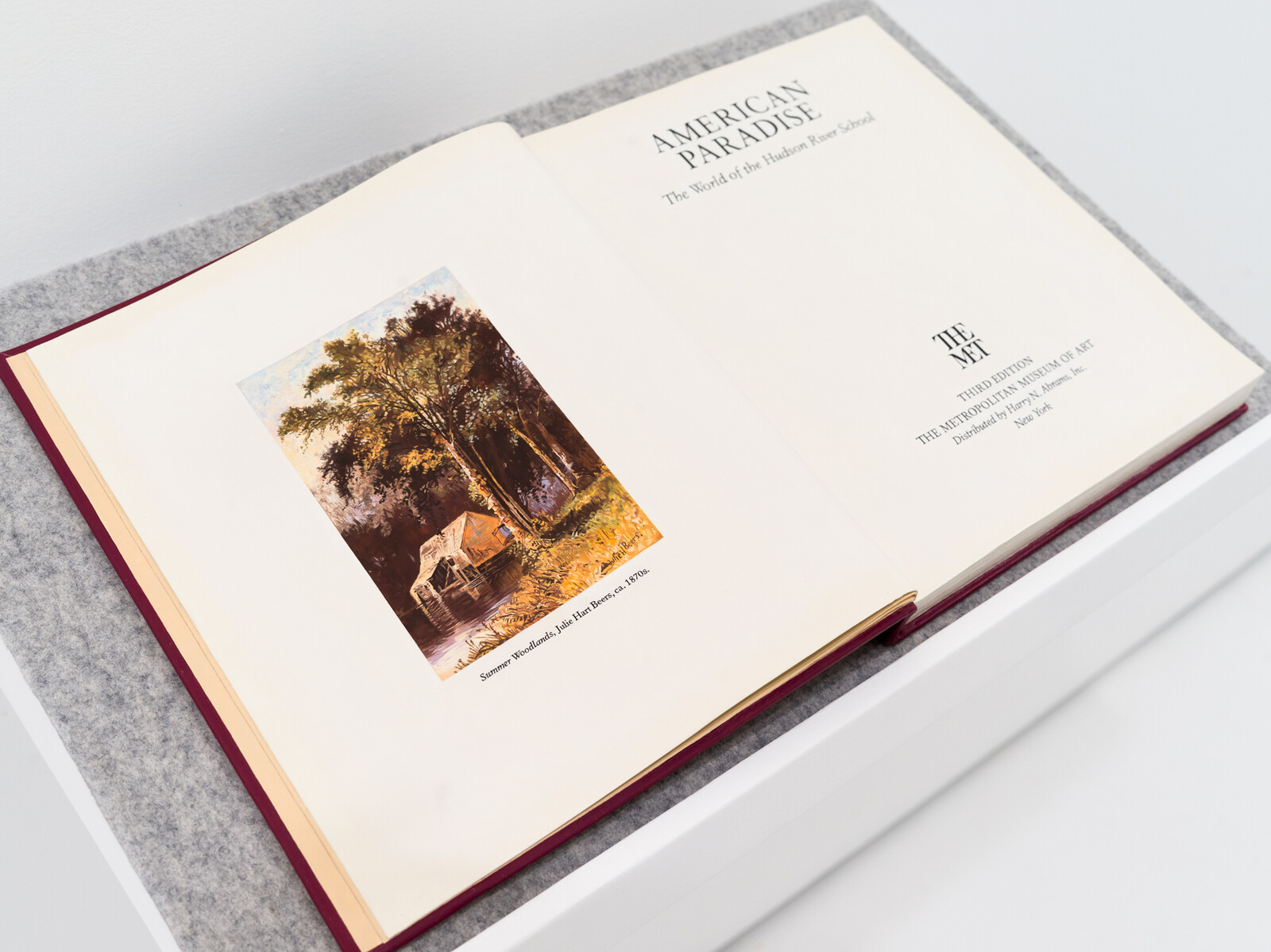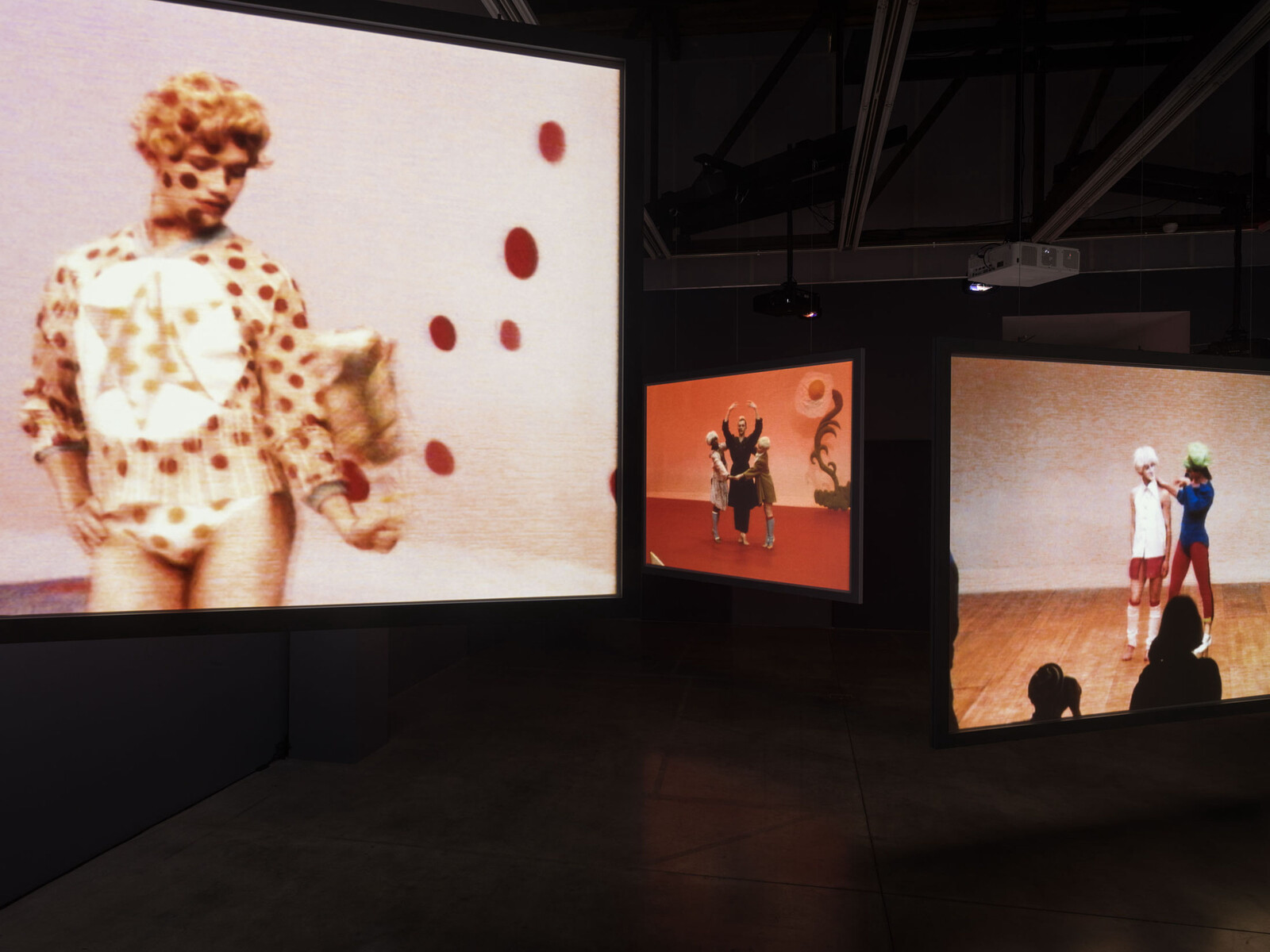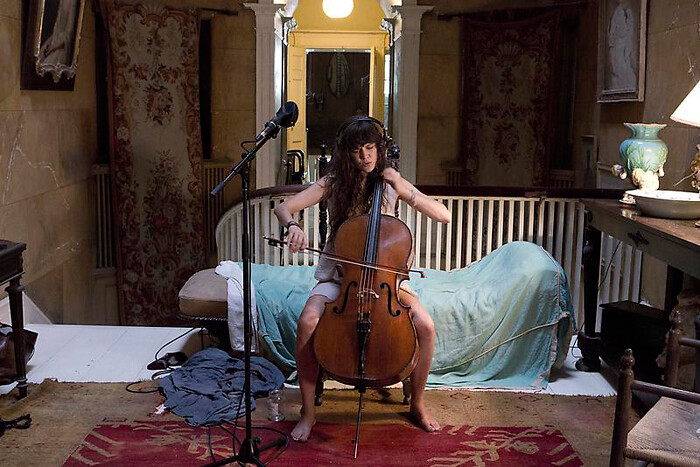Categories
Subjects
Authors
Artists
Venues
Locations
Calendar
Filter
Done
September 20, 2024 – Feature
New York City Roundup
Orit Gat

“American Paradise”: Anna Plesset took the title of her show at Jack Barrett Gallery from a 1987 exhibition at the Metropolitan Museum of Art about the nineteenth-century Hudson River School of American landscape painting, which featured twenty-five male artists and not a single woman. Plesset responds by researching the work of women artists of the time, applying an astonishingly skillful trompe l’oeil technique to the task of filling in historical gaps.
Her show opens with a sculpture mimicking the original exhibition’s catalogue, a perfect facsimile in oil on epoxy, aluminum, and steel placed on a plinth. Ostensibly the catalogue’s third edition (only one edition was published), the frontispiece is here replaced with a painting by a woman artist, Julie Hart Beers. In Value Study 2: Niagara Falls / Copied from a picture by Minot / 1818 (2021), Plesset paints an impeccable reproduction of the paper printout of an online image search for Louisa Davis Minot’s painting of the waterfalls, as if adhered to the canvas for reference using blue painter’s tape. The canvas itself shows the sketch and a beginning of a copy of Minot’s original. Plesset’s realism is not a remedy for historical injustice but a conceptual stop-and-start, a …
March 8, 2023 – Review
Charles Atlas’s “A Prune Twin”
Erik Morse

When Charles Atlas quit as filmmaker-in-residence at the influential Merce Cunningham Dance Company, in 1983, after more than a decade, he decided to embrace a younger generation, a different continent, and a more public medium. These changes coalesced around the Pandean figure of Michael Clark, a former prodigy of London’s Royal Ballet School who in 1984 began to sketch out a punk- and club-inspired choreography with his own newly founded dance company. That same year, Atlas produced two works of videodance—a genre of experimental dance film, popularized by Atlas and Cunningham, in which choreography is designed for the camera rather than the stage.
These two films, Parafango (1984) and Ex-Romance (1984/1987), feature performances by Clark, Philippe Decouflé, and former Cunningham dancer Karole Armitage. They are set in vernacular places such as airport lounges and gas stations, and are spliced with news footage, presenter commentary, and video transmission signals. Both spotlight Clark as the enfant terrible of London’s post-punk underground, and the combination of his fauvist choreography with Atlas’s camp visuals captured a Baroque aesthetic that would characterize its queer subculture throughout the decade.
A Prune Twin, originally commissioned by London’s Barbican in 2020, consists of a multi-channel video projection sourced …
March 11, 2013 – Review
Ragnar Kjartansson’s “The Visitors”
Nickolas Calabrese

Despite his radical experiments in music, modernist composer Charles Ives had the belief that America and its intellectual landscape were filled with the robust spirit of practicality. Ives liked to recall a quote from his father: “If a poet knows more about a horse than he does about heaven, he might better stick to the horse, and some day the horse may carry him into heaven.”
Ragnar Kjartansson has pretty much always stuck to his horse and that horse is song. The Visitors (2012) at Luhring Augustine Gallery is a nine-channel video projection detailing the communal production of a roughly hour-long folk song. The work is inspired by Swedish pop-group Abba and features lyrics from a poem by artist Ásdís Sif Gunnarsdóttir, Kjartansson’s ex-wife, with musical arrangement by the artist and Davíð Þór Jónsson. Each screen harbors one of the band members, with the artist himself playing the role of guitar-strummer and lead singer, taking a bath. The other players are reminiscent of lonesome doves—a cellist in the stairwell, a bass player in the library. Towards the end of the hour, the musicians slowly come together on the ninth screen and descend into a sublime landscape worthy of Thomas Cole’s …